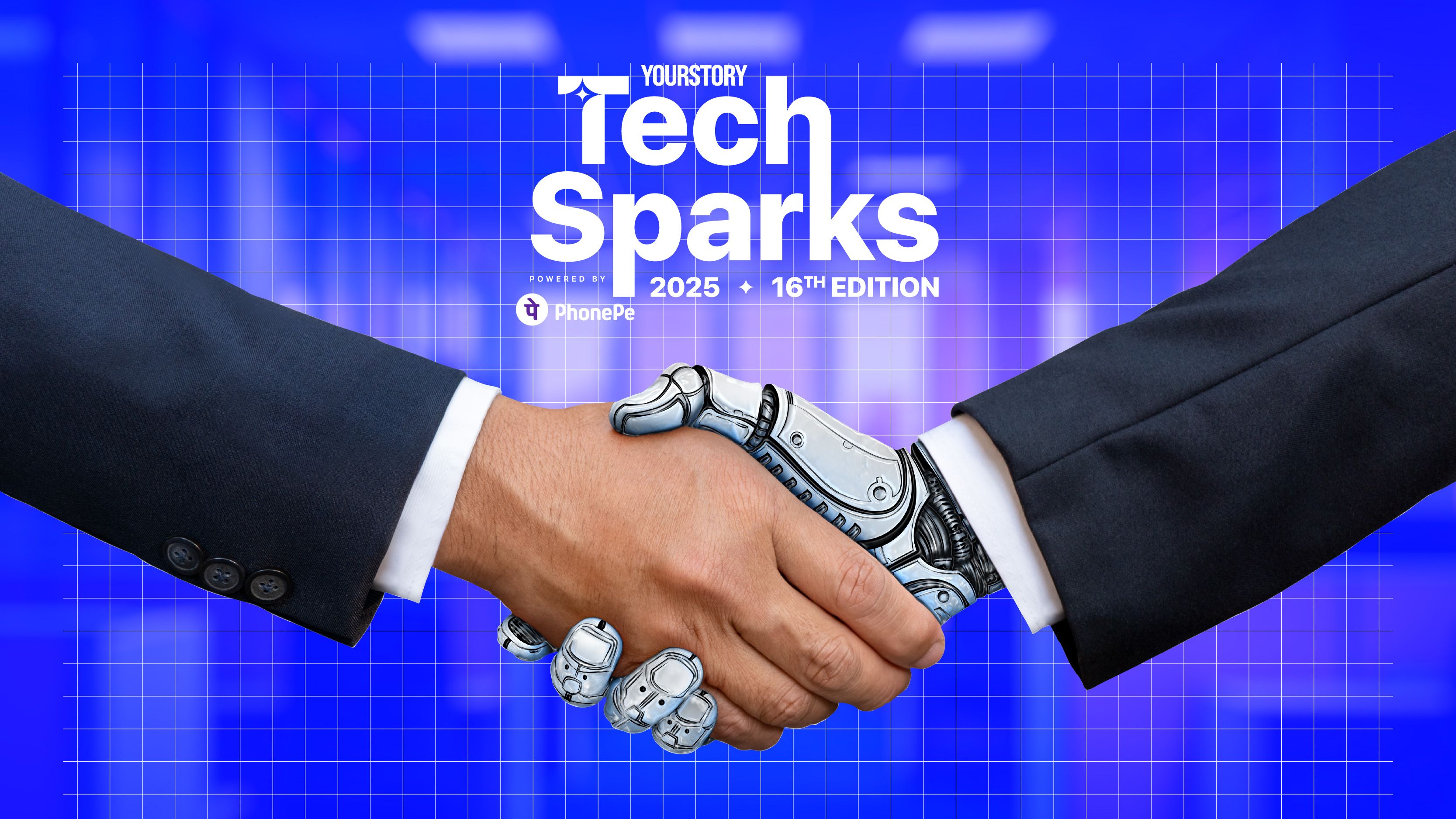By Kaveri Chandrashekar
Copyright yourstory

India is fast emerging as a global AI powerhouse, with its market expected to grow from $7.8 billion in 2025 to more than $17 billion by 2027. A thriving ecosystem—600,000 AI professionals, 700 million internet users, and 2,000+ startups launched in the past three years—has positioned the country at the forefront of enterprise AI adoption, according to BCG.
Government-backed digital infrastructure (Aadhaar, UPI, DigiLocker) and initiatives like the India AI Mission are accelerating this momentum.
Key sectors such as BFSI, retail, energy/industrials, automotive and healthcare are expanding and transforming rapidly by leveraging AI.
Media reports suggest that while 23% of Indian businesses have taken the plunge and fully implemented AI, 73% expect to expand AI use in 2025. By 2027, India’s AI market is poised to surpass $17 billion, thanks to ongoing investments in setting up data centres, strengthening compute infrastructure and nurturing skills development.
AI has moved beyond being a mere asset; it’s becoming the very foundation of tomorrow’s business success.
The four critical functions of AI in India
Indian organisations are rapidly embracing AI across critical functions, mainly in four distinct areas: IT operations and automation, software development, data quality management, and cybersecurity.
In IT operations, AI optimises infrastructure by automating workflows, monitoring systems, and enabling predictive maintenance—decreasing downtime and amping up reliability. Within software and product development, it is transforming engineering workflows through swifter coding, debugging, automated testing, and personalisation, helping companies speed up prototyping and shorten delivery cycles.
AI-driven data management addresses a critical concern for enterprises: higher data quality.
Comprehensive data management allows for thorough cleansing, speedy detection of errors, and the conversion of raw information into actionable insights, while advanced analytics powers forecasting and segmentation.
Cybersecurity has also emerged as a top priority as AI strengthens fraud detection, threat monitoring, and automated incident response. As digitisation continues to grow, companies are now turning to AI to help maintain regulatory compliance and data protection.
These innovations are already visible across industries: in BFSI for fraud detection, credit scoring, and chatbots; in retail and CPG for demand forecasting, recommendations, and supply chain efficiency; in manufacturing and energy for predictive maintenance and quality control; and in healthcare for diagnostics, patient management, and operational efficiency.
Together, these applications highlight how Indian enterprises are weaving AI into their DNA, treating the technology as a core driver of change, resilience, and growth.
Whether its automation, software development, cybersecurity or operational transformation, Indian enterprises are locking in their plans for AI adoption and investment in 2025 and beyond.
The 2030 agenda for AI adoption
A ServiceNow AI Skills Research report, in partnership with Pearson, states that India’s workforce is poised for significant transformation. By 2030, agentic AI will impact over 10.35 million jobs, highlighting the country’s leadership in AI adoption.
The report reveals that Indian businesses are currently leading the APAC region in AI deployment, with around 25% of companies in the advanced phase of AI implementation. With India’s large youth population and a burgeoning digital economy, the country is projected to add 3 million tech workers in the next five years.
An EY report, How much productivity can GenAI unlock in India, suggests that GenAI will prove to be a revolutionary force in the Indian workforce by 2030, reshaping the country’s economic landscape. The report suggests that AI could transform 38 million jobs, with the adoption of GenAI by the unorganised sector.
Furthermore, GenAI is set to redraw the boundaries of each job and fully automate 24% of tasks across industries. AI has the potential to enhance 42% of jobs, freeing up 8-10 hours per week for knowledge workers (employees who generate value for organisations through their expertise, critical thinking and interpersonal skills).
A league of AI innovators: powering change for India
AI startups in India are increasingly collaborating with corporates and government bodies to scale AI adoption across critical sectors. Leading the charge in 2025 are Sarvam AI, AIndra Systems, Mad Street Den, Arya.ai, and Uniphore.
Sarvam AI is building sovereign AI models for Indian languages under the INDIAai Mission, enabling translation and enterprise NLP solutions tailored for the country’s linguistic diversity. AIndra Systems focuses on healthcare diagnostics with AI-powered point-of-care cervical cancer screening tools adopted by hospitals and public health agencies. Mad Street Den’s Vue.ai powers visual recognition and personalisation for ecommerce, retail, and government skill platforms, while Arya.ai develops deep learning platforms for banks and insurers, driving regulatory-compliant AI for underwriting and fraud detection.
Meanwhile, Uniphore leads in conversational AI, offering enterprise-grade assistants for corporates and public service helplines.
Beyond these frontrunners, a vibrant ecosystem of startups is reshaping enterprise AI in India. SigTuple is advancing AI-driven diagnostic solutions for labs and public health programs. Fractal Analytics provides decision intelligence platforms to conglomerates and government agencies. Locus optimises logistics for FMCG, ecommerce, and postal systems, and Active.ai is enabling conversational banking and fintech automation. Krutrim is developing India-focused foundational large language models with applications across governance, corporates, and citizen services.
This bustling AI ecosystem is buoyed by strong growth and investor interest, with $665 million raised in the first seven to eight months in 2025, indicating a significant spike (close to 50%) compared to 2024.
Overall, the AI landscape in India is thriving, with disruptions and developments in everything, from language and healthcare to BFSI, logistics, retail and public services, showcasing how AI-driven enterprises are fuelling an economy of change and innovation.
(Learn more on how AI is reshaping India’s startup ecosystem and be part of this change only at TechSparks 2025. Join us at Taj Yeshwantpur, Bengaluru, on November 6–8 and witness the innovation shaping the nation’s future. For more information, click here.)



